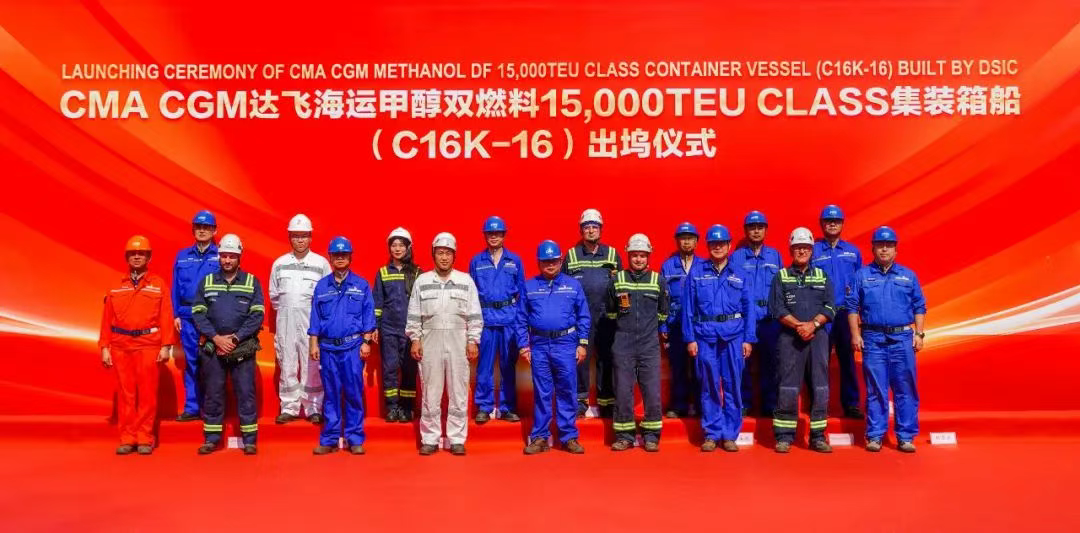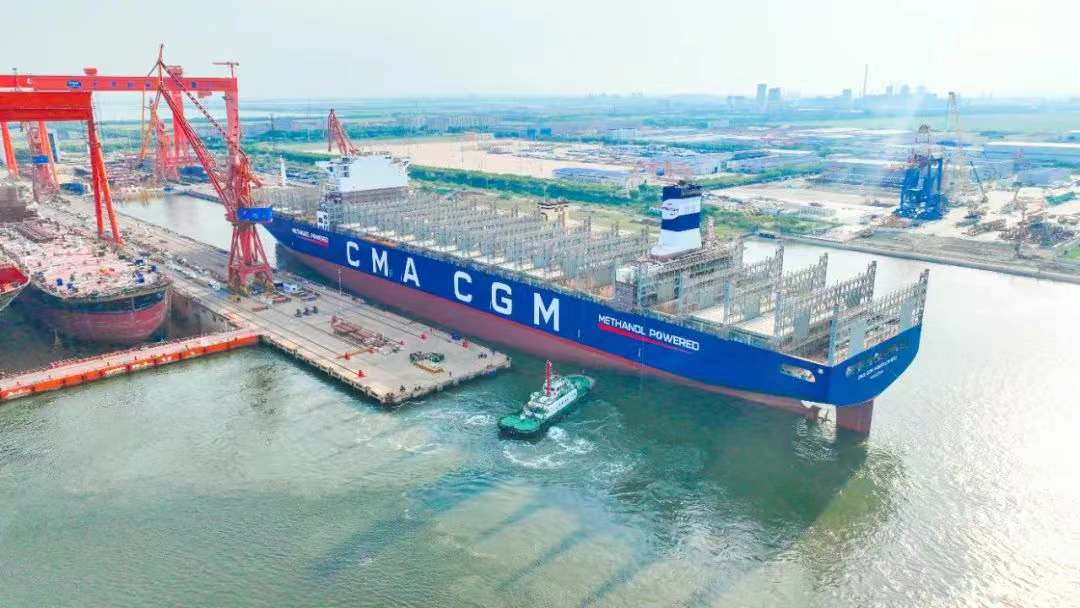On June 23, CSSC (Tianjin) Shipbuilding, a subsidiary of Dalian Shipbuilding Industry Corporation (DSIC), successfully launched the first methanol dual-fuel container ship (C16K-16) built for France’s CMA CGM Group, marking its entry into the underwater commissioning stage.

It is the first ship in the first batch of methanol dual-fuel container ship orders undertaken by CSSC. The successful launch of the ship has written a new chapter in the strategic partnership between China and France and is of great milestone significance.
The container ship is a neo-Panamax vessel with a total length of 366 meters, a beam of 51 meters, a depth of 30.2 meters, and a maximum loading capacity of 16,136 containers. In addition to conventional containers, it can also load 1,000 refrigerated containers. The ship is flexible in fuel selection, and can use methanol as a power source or conventional fuel oil as fuel, achieving net zero emissions and fully meeting the current environmental emission standards for maritime navigation.

The vessel has the following highlights:
- Green & Energy-saving – Adopting a brand-new hull form combined with a large-diameter propeller, it can carry 8,300 tons of methanol fuel and 6,000 tons of fuel oil, enabling long-range navigation capabilities.
- Lean & Intelligent – Equipped with an intelligent ship management system, it realizes real-time monitoring and precise regulation of the vessel’s operational status, significantly improving operational efficiency and management levels.
- High-end & comfort—the midship boasts a 10-story residential building equipped with elevators, a basketball court, and a BBQ area. The elegant interior design is aesthetically pleasing and functional, ensuring the ultimate in comfort.
Next, CSSC (Tianjin) Shipbuilding will focus on lean management, improve product quality, continue to deepen the “intelligent manufacturing + green and low-carbon” dual-wheel drive strategy, and build core competitiveness in the field of green shipbuilding through technological innovation and management reform.


